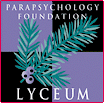 |
 |
| Click here for the PF Lyceum Site Index
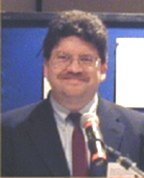
I. Psychical Research at the 1889 International Congress of Physiological Psychology PF Lyceum Blog #14, September 14th, 2006 Carlos S. Alvarado, PhD (For a biography of Dr. Alvarado click here .) During the late nineteenth century the phenomena of mediumship, telepathy and other phenomena studied by psychical research were generally ignored by psychologists, or considered to be phenomena explained by chance, hallucinations, psychopathology, or the result of a variety of physiological processes. (See our bibliography on the topic, and the commentary “Nineteenth-Century Approaches to Psychical Phenomena”) Regardless of the skepticism of many psychologists towards psychical research and its phenomena, there were interesting discussions on the topic. In 1889, William James wrote the following about a meeting of psychologists held at Paris: “The most striking feature of the discussions was, perhaps, their tendency to slope off to some or other of those shady horizons with which the name of ‘psychic research’ is now associated” (James, 1889, p. 615). The Congress in question was an important event in the professionalization of psychology as a research community, and the first of several such congresses. The Congress included a variety of topics, of which heredity, hallucinations, hypnotism and the muscular sense were the main ones. Psychical research featured in the discussions on hallucinations, and hypnotism. 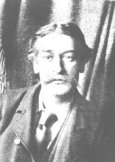 The inclusion of psychical research matters in the international congresses of psychology certainly is indicative of the interest in these topics during the late nineteenth century. The inclusion of psychical research matters in the international congresses of psychology certainly is indicative of the interest in these topics during the late nineteenth century. 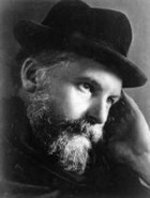 However, this does not mean that psychical research topics were not highly controversial nor that they were an accepted part of psychology. While men like Edmund Gurney, Frederic W. H. Myers, Charles Richet, and others certainly saw thought-transference, mediumship, and other phenomena as important to psychology, and as representing phenomena that sometimes could not be explained by such conventional mechanisms as However, this does not mean that psychical research topics were not highly controversial nor that they were an accepted part of psychology. While men like Edmund Gurney, Frederic W. H. Myers, Charles Richet, and others certainly saw thought-transference, mediumship, and other phenomena as important to psychology, and as representing phenomena that sometimes could not be explained by such conventional mechanisms as 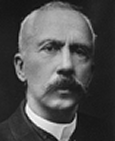 automatisms, chance, fraud, hallucination, and suggestion, this was not the view of the establishment. (To the left above is Edmund Gurney. To the right is F. W. H. Myers. And to the left below is Charles Richet.) automatisms, chance, fraud, hallucination, and suggestion, this was not the view of the establishment. (To the left above is Edmund Gurney. To the right is F. W. H. Myers. And to the left below is Charles Richet.)
Such a perspective is clear in historical studies of the interactions of medical and psychological perspectives with ideas about psychic phenomena during the nineteenth century. This is also evident from the reactions of some of the attendees at the conferences. Consequently we need to be careful about concluding that the presence of psychical research in these congresses meant acceptance into the mainstream. Then, as now, official psychology and related disciplines have shown some interest in and openness to the topics, but it would be wrong to consider these fleeting glances as indications of acceptance by the professionals of those times. While it has been argued that psychical research had an impact on the development of psychology and psychiatry (see both our bibliography and our short article on the topic), we cannot claim that inclusion of psychical research in the congresses represented acceptance by official science. Nonetheless, the congress offer us a window into dynamic lines of influence and interactions regarding psychic phenomena during 1889. References James, W. (1889). The congress of physiological psychology at Paris. Mind, 14, 614-615. *********** For the index of all previous blogs, click here. |
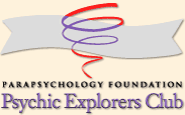 |

|
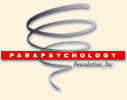 www. parapsychology. org |
||